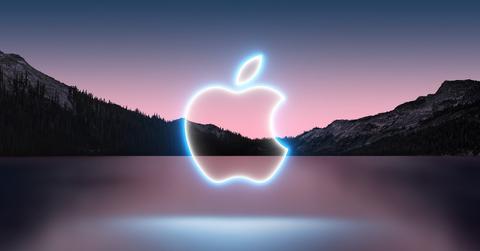Will Apple Stock Split in 2022? Seems Unlikely Right Now
Apple stock has gone up a lot in the past 10 years, which sometimes can prompt stock splits to bring down the price per share. However, Apple hasn't announced a stock split for 2022.
March 10 2022, Published 11:46 a.m. ET

When a company’s share price grows rapidly and continuously, investors begin to wonder if that company will choose to undergo a stock split. A stock split, which increases the number of shares without adjusting the volume of shares, makes stocks more affordable to a greater number of investors. Following rapid share price increases, will Apple stock split in 2022?
In February, Apple’s price was eight times higher than 10 years ago. That kind of growth can prompt analysts and investors to consider whether a stock split would benefit the company. Apple executives would need to decide if a stock split would draw in more investors, and how that could impact future growth.
Apple stock has split five times in its history.
Since the company first went public, Apple has had five stock splits. The stock splits took place in 1987, 2000, 2005, 2014, and 2020.
June 16, 1987: 2-for-1 stock split
June 21, 2000: 2-for-1 stock split
February 28, 2005: 2-for-1 stock split
June 9, 2014: 7-for-1 stock split
August 28, 2020: 4-for-1 stock split
Given that Apple had its last stock split fairly recently in 2020, the company may not be eager to do another stock split just yet.
There have been doubts that Apple will split its stock anytime soon. Its price is about $158 as of March 10, which is closer to the range that Amazon will be if it follows through with the 20-for-1 split.
Amazon and Google both announced 20-for-1 stock splits this year.
If Apple were to have another stock split in 2022, it would join other companies in the top 10 of the Fortune 500. Google and Amazon announced stock splits on a 20-for-1 basis this year. However, Apple hasn’t announced plans for a stock split.
On February 1, 2022, a Google stock split was announced on a 20-for-1 basis, to result in every share prior to the split being worth 20 shares after the split. Google’s Alphabet decided to split the stock in order to make shares more accessible to investors, CFO Ruth Parat stated.
On March 9, Amazon also announced a 20-for-1 stock split, the fourth since its 1997 IPO, as CNBC reported. Share prices increased 6 percent upon the news. CNBC noted that if the split happened as of closing on March 9, share prices would drop from $2,785.58 to $139.28.
Why do companies undergo stock splits?
Although a stock split lowers the price of each share, it doesn’t directly impact the value of a company’s stock. If an investor holds one share of Amazon today, it will convert automatically to 20 shares when the stock split takes effect.
The total value of any investor’s shares won’t change. The number of outstanding shares increases as the price per share decreases.
Most companies who split stock do so to make it more accessible to investors. The lower the share price, the more people can afford to buy stock in the company. According to Quartz, Amazon and Google might also be hoping to score a spot in the Dow Jones Industrial Average, which often leaves out higher-priced stocks.
Other CEOs like Warren Buffett aren't concerned about attracting lower-net-worth investors. Berkshire Hathaway stock has never split and is currently about $487,000 for a single Class A share.

